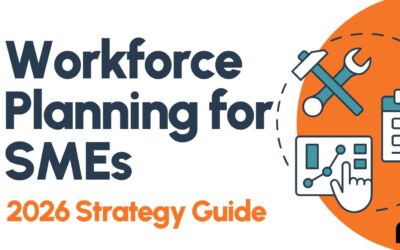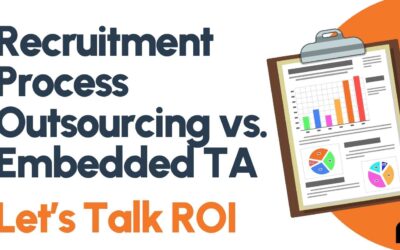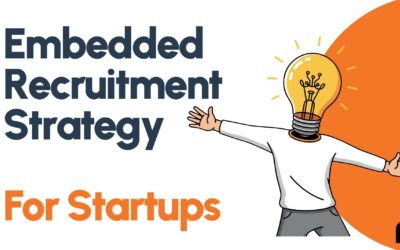Understanding the Current Landscape of Interviewing
Oh, how times have changed in the world of recruitment! Gone are the days when a straightforward CV and a firm handshake decided your fate. Today, it’s all about modern interview techniques, involving dynamic interactions and digging deeper into what really makes candidates tick. As Adam Coleman insightfully pointed out in our recent webinar, traditional qualifications and experience are taking a back seat to behavioural insights, which are much more telling of a candidate’s potential success.
It’s out with the old and in with the new when it comes to interviews. The modern approach is less about grilling candidates and more about having a genuine chat to see if there’s a mutual fit. Imagine it as a bit like detective work, where you’re piecing together the puzzle of a candidate’s personality, values, and potential to grow with you and your company.
As Adam Coleman shared in our recent interview best practices webinar, it’s about “finding out what makes each candidate tick, not just ticking boxes on a job spec.”
What Role does Technology play in Evolving Interview Practices?
Isn’t technology a marvel? It’s reshaping how we handle the recruitment process, from simplifying the initial screening to setting up seamless digital interviews. However, as we integrate more tech, we must remember the human touch is irreplaceable. As the discussion suggests, using AI to filter candidates is brilliant, but the final decisions? They still need that human intuition and personal interaction to make the best choices.
Fredericka Sheppard Co-founder and managing director at Voltedge Management opened an engaging discussion during our recent webinar on the potential of AI in streamlining initial stages of recruitment. However, she stressed the importance of human interaction to understand a candidate’s deeper motivations and cultural fit, which AI cannot replicate.
Let’s Talk About the Candidate Experience…
First impressions are everything, aren’t they? The candidate experience starts the moment they click on your job ad and doesn’t just end after the interview. It’s about making the whole journey as smooth and respectful as possible.
Strategies for Enhancing Candidate Engagement
Keeping candidates engaged isn’t just about ticking through a checklist. It’s about creating a genuine connection and making them feel excited about the possibility of joining your team. Clear communication, transparency about the process, and respect for their time go a long way in boosting their engagement and leaving them with a positive impression of your company, regardless of the outcome.
During our Interview best practice webinar Fredricka highlighted how early screening can significantly influence the overall process. She noted, “Screening for some of those things early on are important.” By integrating thoughtful questions and interactions from the start, you make candidates feel they are entering a dialogue, not just a selection process. This ensures they remain engaged and interested throughout.
Case Studies: Successful Candidate Experiences
Looking at companies like HR Locker and Voltage Management, we see the power of structured yet adaptable interview processes. They tailor their methods to meet both the candidates’ and the company’s needs, ensuring a great fit which is crucial for long-term success. It’s a win-win situation where both parties feel confident and content with the match.
Adam Coleman stresses that gathering comprehensive feedback during the interview helps make more informed decisions and provides candidates with insights that aid their professional development, whether they join your team or not.
Lets Move onto Constructive Feedback…
Giving feedback is an art. It should be timely, specific, and focus on behaviours observed during the interview rather than personal traits. Positive feedback is just as important as constructive criticism, as it helps build confidence and affirms strengths. Prepare Thoughtfully: Before the interview, decide on the criteria you’ll use to assess candidates and consider how you’ll communicate strengths and areas for improvement based on these criteria. Be Specific, rather than making general comments, focus on specific behaviours or outcomes. Be Consistent: Apply the same criteria and approach to feedback for all candidates. This ensures fairness in the process and protects the integrity of your evaluation. Offer feedback soon after the interview while the details are still fresh. Ensure that your feedback is precise and directly related to the observed behaviours and responses collected during the interview.
By fostering a culture where feedback is routinely given and received, you encourage continuous improvement and adaptation, which not only helps individuals grow but also enhances team dynamics and company performance.
Fredrika Shepherd discusses how feedback can aid in refining both the interview process and the candidate’s future applications. She advocates for a feedback-rich environment, where insights from interviews are used to guide candidates on their strengths and areas for improvement & fostering a growth culture.
Feedback as a Tool for Growth
Building a feedback-rich environment within your HR practices can transform the recruitment process into a strategic component of organisational growth, helping both employees and candidates align better with company goals and culture. It promotes an open, inclusive, and dynamic workplace where continuous improvement is the norm. Structured feedback mechanisms help identify areas for improvement and foster a proactive dialogue between HR and candidates, ensuring all parties are aligned and can work together towards shared goals.
Navigating Legal and Ethical Considerations in Interviews
Staying on the right side of the law isn’t just good practice—it’s essential. Ensuring that your interview processes are legally compliant and ethically sound protects your company and affirms your reputation as a fair and respectable employer.
From discrimination laws to data protection regulations, keeping abreast of legal requirements is a must. Regular training sessions and staying updated with the latest legal developments can help your team navigate the complex landscape of employment law confidently and competently.
Bias in recruitment can sneak in unnoticed but can be combated with structured interviews and consistent questions for all candidates. Structured scoring not only helps mitigate unconscious bias but also ensures a fair and equitable selection process.
The Impact of AI in Recruitment
While AI can streamline many aspects of recruitment, it’s essential to balance its use with human judgment. This combo allows for efficient yet thoughtful recruitment processes that maintain personal touches—essential for making candidates feel truly considered.
Advantages of AI in Streamlining Recruitment
AI’s ability to process applications quickly and efficiently is undeniably beneficial. However, the final stages of recruitment should always be graced with human insight to ensure that the nuances of candidate fit are thoroughly evaluated.
Integrating AI tools should enhance, not replace, human interactions in recruitment. This balance ensures that while we enjoy efficiency and broader capabilities, we also maintain the essential human elements that make the recruitment process both effective and humane.
Frederica Shepherd shares that using AI can help streamline the process but stresses the importance of maintaining a personal connection to ensure candidates feel valued.
The evolution of interview practices within HR is not just about keeping pace with technological advancements but also about embracing a more humane and ethical approach to recruitment. As we have seen, integrating modern techniques such as AI can enhance efficiency, but it is the human touch that ensures the recruitment process remains personal and respectful. The insights from leaders like Adam Coleman and Frederica Shepherd highlight the importance of understanding each candidate’s unique potential and maintaining transparency and fairness throughout the interview process.
Navigating the legal landscape and prioritising ethical considerations are equally crucial to fostering an environment of trust and respect. By adhering to these principles, HR teams can not only attract but also retain the right talent who are aligned with the company’s values and long-term objectives.
Ultimately, the goal is to create a recruitment experience that is not only effective but also enriching for all parties involved. This approach not only improves the quality of hires but also strengthens the organisation’s culture, encouraging a continuous cycle of growth and improvement. As HR professionals, committing to these best practices in interviews will ensure that our methods remain not only current but also conscientiously aligned with the core values of our profession and the businesses we serve.


BOOK A DISCOVERY CALL
Lower Your Cost and Time to Hire with Rent a Recruiter Today
Rent a Recruiter provides award-winning recruitment outsourcing, focusing on Talent Acquisition for IT, Engineering, Manufacturing, Construction, Finance, and Healthcare. Our embedded solutions align with your scaling business needs to ensure seamless hiring.


